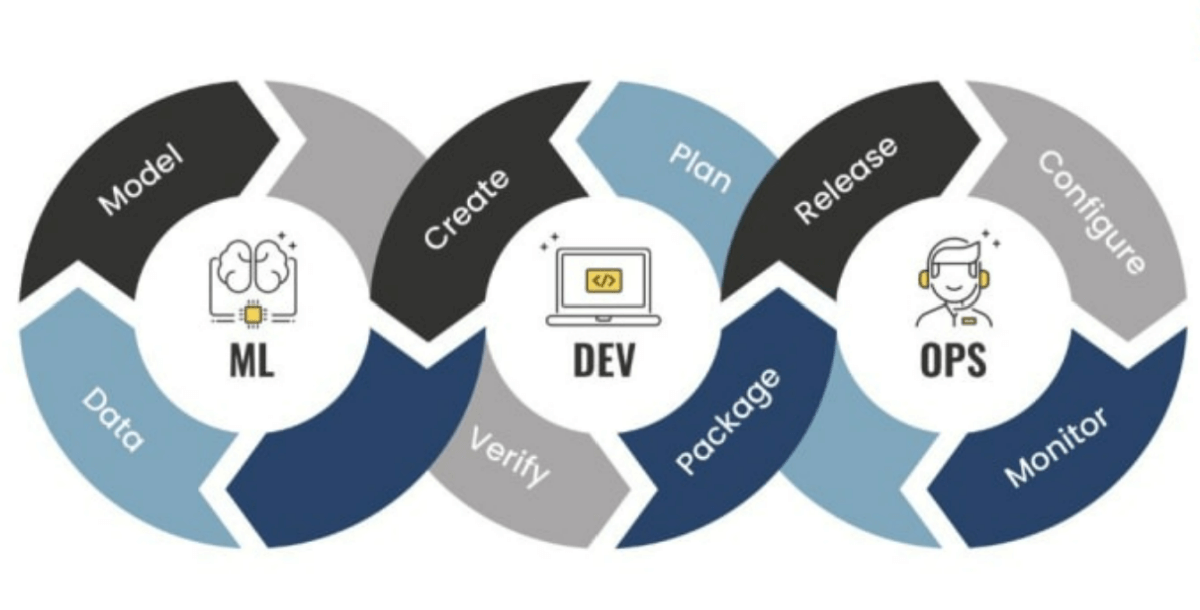MLOps, short for “Machine Learning Operations,” is a practice that combines machine learning (ML) and software engineering principles to effectively deploy, manage, and monitor ML models in production environments. It focuses on streamlining the ML lifecycle and bridging the gap between data science and IT operations.
MLOps aims to address the challenges associated with deploying and maintaining ML models at scale, including version control, reproducibility, scalability, monitoring, and collaboration. It applies concepts and techniques from DevOps, data engineering, and software engineering to the ML workflow.
Key components of MLOps include:
Model development and training: Data scientists use ML frameworks and tools to develop, train, and evaluate ML models using various algorithms and datasets.
Model packaging and deployment: ML models are packaged into containers or executable formats that can be deployed in production environments. This ensures consistency and reproducibility.
Continuous integration and continuous deployment (CI/CD): MLOps adopts CI/CD practices to automate the build, test, and deployment of ML models, allowing for faster iteration and reducing time to deployment.
Infrastructure management: MLOps focuses on managing the infrastructure required to deploy ML models, including cloud resources, container orchestration platforms (e.g., Kubernetes), and scalable compute environments.
Monitoring and observability: MLOps incorporates monitoring and logging mechanisms to track model performance, data drift, and system health. This helps detect anomalies, ensure model reliability, and facilitate proactive maintenance.
Model versioning and governance: MLOps emphasizes version control and model governance to track changes, manage model versions, and enforce compliance and regulatory requirements.
Collaboration and knowledge sharing: MLOps promotes cross-functional collaboration between data scientists, engineers, and operations teams, facilitating knowledge sharing, best practices, and effective communication.
By adopting MLOps practices, organizations can accelerate the development and deployment of ML models, improve model reliability and performance, reduce operational risks, and enable scalable and efficient management of ML solutions in production environments.





